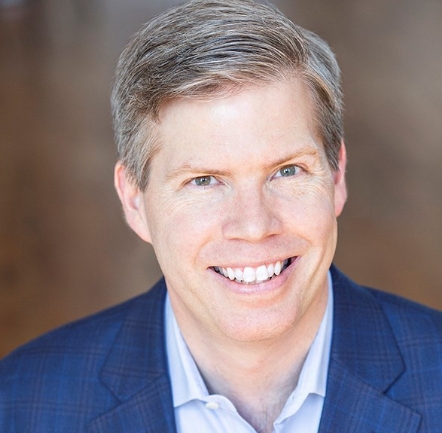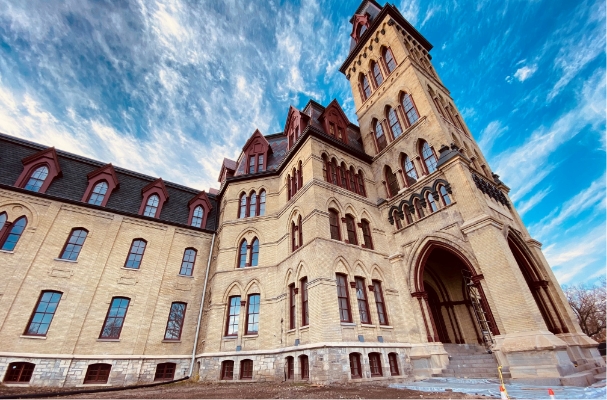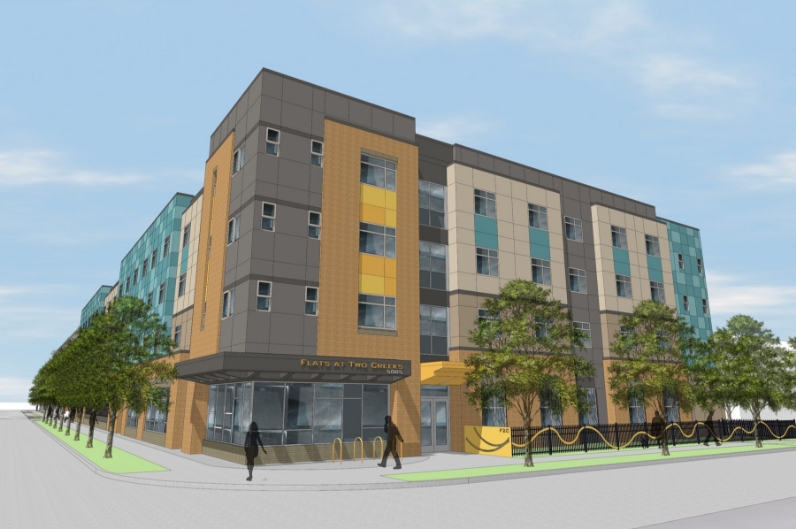
Last year was unprecedented in so many ways. Amid the reality of an ongoing global pandemic, and the magnification of the social and racial injustice that has been in place far too long, we heard an increasingly greater - and louder - call for help. The need for affordable housing, jobs and community support had never been more important or challenging. But from those challenges we found new opportunities to extend our mission to create and deliver innovative, collaborative financial solutions to expand the creation and preservation of affordable housing. As part of our mission, we strive to be a diverse, equitable and inclusive place to work so that our team has the experience and knowledge to effectively support our partners and communities.
Financially, 2020 was our strongest year yet. NEF achieved a record-breaking year of production with $1.5 billion dollars invested, allowing us to expand our core LIHTC portfolio to reach new communities and their residents and to think bigger and more broadly about how else we could leverage our strength and expertise to amplify our impact. There is a lot to be proud of and there is still a lot of work to do. But the best part of a record-breaking investment year is that behind those numbers are more families, individuals and communities with the chance to build a brighter future.
“I can’t think of a time when affordable housing has been more important to our communities or our national economy. It is a public health imperative, serving as a bulwark against the coronavirus. It creates jobs and boosts local income in the midst of a recession. And it is a core component of racial and economic justice, helping reduce inequality so that millions of people can build a good quality of life.”
- Matthew Reilein, NEF president and CEO
National Equity Fund made more affordable housing investments in 2020 than at any time in our 33-year history, helping local housing providers keep development plans on track during the pandemic while also bolstering jobs and income in hard-hit communities.
All told, NEF invested $1.5 billion for the year, including more than $1 billion in equity for Low Income Housing Tax Credit (LIHTC) developments and $420 million in loans to finance affordable housing preservation efforts. Other activity for the year includes Opportunity Zones investments to fuel workforce housing, pre-development loans to help a range of new developments move forward and grants to help housing providers implement health measures to protect their staff and residents against COVID-19. Combined, those efforts are supporting more than 13,240 units of affordable housing nationwide, along with an estimated 16,200 jobs.
Based on its strong 2020 results, NEF will make a $14.6 million grant to the Local Initiatives Support Corporation (LISC) to support wide-ranging work focused on economic development, education, health, safety and jobs.
Please contact Alex Denja to request NEF financial documents.
GROWTH. STRENGTH. EQUITY.
SELECT A STATE FOR MORE INFO
*includes preservation developments, as of January 1, 2021
NEF finances a wide range of affordable housing, from straightforward development efforts to some of the toughest deals in the industry. We are pioneers in the supportive housing arena. We quickly adapt to changing market conditions, developing new models that respond to our local partners and investors, as well as our own business objectives. That’s possible because of innovative thinking, an exceptionally creative staff, a mission-driven strategy and more than three decades of experience.
During times when investor equity was more difficult to obtain, we forged relationships with unconventional lenders. In the pioneering days of supportive housing, we focused not on if it could be done, but on how to make it happen. As the crisis of veterans experiencing homelessness moved to the forefront of public attention, we worked diligently on solutions. And when the COVID-19 pandemic hit, we raised nearly $200,000 to provide grants that helped our sponsors meet resident’s basic needs.
Over the last 33 years, NEF has created a robust approach to permanent supportive housing that has positioned us as an innovator in the field. We provide early technical assistance to these complex housing developments to share lessons learned from other markets and expedite the pre-development process. We have invested more than $3 billion to finance some 35,000 service-enriched homes for persons with disabilities and individuals and families who have experienced homelessness. That includes our Bring Them HOMES initiative, which was founded in 2012 to expand and accelerate our program of creating affordable, permanent, sustainable homes with supportive services for our veterans. Since that time, NEF has assisted 99 developments in 22 states (including the District of Columbia) to create 5,542 new homes for veterans.

Old Milwaukee Soldiers Home, which was completed in 2020, is an extraordinary example of Bring Them HOMES.
It’s a truly transformative project that revitalizes a campus originally built in 1867 to help rehabilitate Civil War veterans. Many buildings had been shuttered since the 1980s. It now provides quality housing and services in six historic structures to more than 100 veterans experiencing homelessness and families on the same campus as the local VA hospital.
“I started my career during the pioneering days of supportive housing, and it has since become my passion. It is the reason I am still doing this work and still looking for ways to meet emerging challenges. For me, the Soldiers Home encapsulates so much about supportive housing and the ripple effect it has on families and communities.”
- Debbie Burkart, national vice president supportive housing.
After the standard 15-year commitment period, our dispositions team helps our investors to exit the project in a thoughtful and meaningful way. Reaching the end of the investment timeline doesn’t end NEF’s commitment to each project, our partners and the community at large. We work hard to maintain the positive community relations fostered over the last decade and a half, and to minimize any displacement of current residents as rents across the country continue to rise. While we wind up the funds in a timely matter, we also encourage continued ownership from our partners to help serve the growing affordable housing needs of households with incomes below the average area median income.
To date, NEF funds and investors have exited more than 1,400 of our project partnerships—which represents more than half of our aggregate portfolio. We continue to provide some of the most flexible, streamlined, holistic and community-focused Year-15 processes in the industry.
“Year-15 may mark the end of the limited partner’s involvement in the project, but NEF recognizes the importance of preserving these affordable developments for residents and communities. We continuously work to help our partners to seamlessly navigate through the complex dispositions process.”
-Bob Snow, vice president dispositions

Preserving affordable housing is a cornerstone of NEF’s mission and critical to addressing the housing pressure facing many communities. That’s why we launched a series of Preservation Loan Funds, which provide bridge financing to support recapitalization and long-term affordability.
Our inaugural fund in 2015 invested $48 million in valuable projects. Now, our preservation funds average $463 million annually, including $420 million in 2020.
In 2020, NEF continued to grow its business beyond traditional LIHTC investments to encompass a range of housing finance solutions, including preservation lending, to help maintain the nation’s existing affordable housing stock. With NEF’s ability to provide creative, flexible financing, our activity in this area has grown exponentially during the past six years and has become a focus of our strategic plan. With the experience of our highly-experienced team, and investor capital that allows for creative financing solutions that fit our borrower needs, we have been able to expand our commitments and serve as an industry leader in preservation lending.

In late 2020 in the wake of the George Floyd murder, NEF launched the $100 million Emerging Minority Developers Fund (EMDF) as a new way to openly address and fight racism, discrimination and inequality. While social impact has always been part of our mission, we knew there was more we could do at NEF to truly be part of the change. Launching EMDF helped to open the door to less established, but highly capable affordable housing development firms led by people of color; and to give them the access to high-impact Low Income Housing Tax Credits that historically went to long-time developers. The $100 million fund provides capital and technical support, as well as a tailored approach to project underwriting, so these firms can build quality affordable housing in their communities, while also building a track record of success that grows their businesses and creates local jobs. We are working to close the first deals right now and remain committed to providing new opportunities to break down old barriers and drive affordable housing forward.
“This is about breaking down historical barriers, testing an approach that others can replicate and building the next generation of LIHTC developers. If we are going to solve the country’s affordable housing crisis, and if we want to help make our economy fairer and more robust, then we need to think, act and invest differently. That’s what this fund is all about. The measure of success will be in 10-15 years, when we see this cohort of developers with multiple properties and scaled businesses.”
-Michael Jacobs, NEF senior vice president/originations
As a direct response to COVID-19, National Equity Fund created NEF Housing Charities, Inc., a nonprofit subsidiary that raised grant funding to help nonprofit developers and service providers meet the pandemic related challenges—both for their organizations and for the residents they serve.
NEF committed $100,000 of its own funds to the effort and raised an additional $91,500 through NEF Housing Charities for microgrants to 15 of our partners, helping them provide food, broadband, PPE and more to vulnerable residents.
Read more heartwarming comments from some of our other partners that received grants through NEF Housing Charities.
“On behalf of the school-age kids who really need laptops to keep up in school – we want to express our sincere gratitude.”
“We are grateful to our friends at NEF who support us in our mission of providing beautiful, affordable and accessible apartments for individuals who have a disability and are in need of affordable housing.”
“Thank you so much for this grant. We are proud of our service programs, and this grant will help us to continue to provide much needed services for our residents during this very challenging time.”
Pictured: A young resident at a Hollywood Community Housing development in California receives one of 25 laptops purchased with grant funds provided by NEF to help kids stay connected to school during the pandemic.
“Opportunity Zones capital and an impact-focused investor make it possible to include workforce housing in these developments, providing units for the ‘missing middle’ of the housing market. Many developers avoid these kinds of projects because the rent levels can’t support the debt required to build it, and there is no direct federal incentive to make it feasible. But institutional investors looking to meet their CRA obligations can make this happen.”
-Karen Przypyszny, NEF managing director special initiatives
In 2020, we saw the deepening of a broad national conversation about diversity and inclusion. In response, NEF’s leadership team strengthened existing strategies surrounding equity, not only in how we invest in our staff, but in how we build our relationships with partners and communities.
In 2020, we established a new diversity committee to evaluate our policies and procedures, looking for blind spots in how we hire and promote people and recommending changes where needed. In 2021, we launched a new internship program to engage promising young professionals, making sure we attract women and people of color, as well as white candidates. And we are furthering our flexible, high-touch approach to management—finding ways to support the health of our staff as we move slowly toward reopening and recovery from the pandemic.
In short, we are continuing to expand and develop our staff to meet the needs of partners, investors and communities.
“We’re taking stock of our hiring and promotion practices to make sure that we are actively developing a wide range of talent. In practice, it means focusing more intently on hiring people of varied personal and professional backgrounds that can contribute to our success. And, just as importantly, it means making sure we are offering our staff real opportunities for growth. Our goal is to develop their skills to help strengthen NEF for the future as we continue to innovate and provide a meaningful employee experience.”
-Jaclyn Jackson, SVP/Chief Human Resources Officer
National Equity Fund, Inc.’s board of directors brings solid and impressive credentials to the table as well as the ability to effectively support our staff of professionals. They’re not just a group of the country’s top affordable housing experts but also a strong team dedicated to helping communities grow responsibly.
On the coattails of a record-breaking year in 2020, NEF is continuing to build our capacity to fund innovative, high-impact developments. We are working to reduce the worsening affordable housing shortage, which has significant implications for the economic outlook of families and communities. And we are fueling the creativity of the NEF team, as they design solutions to complex challenges.
We expect to close the first projects in the Emerging Minority Developers Fund in 2021. Through EMDF, NEF is planting seeds today to help build a diverse new generation of LIHTC developers and deliver financing to projects and communities that might otherwise struggle to advance their goals.
In 2021, we are also working to expand our national footprint—growing our presence in rural markets as well as urban areas where we still have a limited presence, like in some parts of the Southeast. Toward that end, we are excited about special initiatives, like the Greater Atlanta Affordable Housing Preservation Fund, which NEF is helping drive forward.
Similarly, we are growing our housing services offerings in 2021 and collaborating with new partners in new ways—from working with municipalities to help manage their housing plans and portfolios to helping developers arrange insurance and other support.
Everything we do is in service to our mission: making sure that people across the country have access to stable, safe and affordable homes that provide a foundation for them to build a good quality of life; by striving to be a diverse, equitable and inclusive place to work so that our team has the experience and knowledge to effectively support our partners and communities.